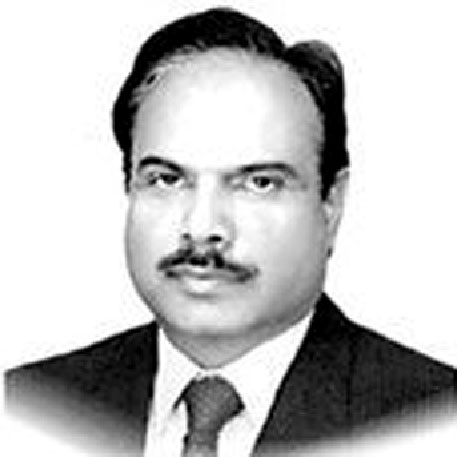Kanwar Muhammad Dilshad
THE two-nation theory presented a strong
theoretical basis for the establishment of
Pakistan. The weight of the argument was greatly reinforced by the fact that on pragmatic grounds too Pakistan was a viable proposition. It has often been conjectured that while Pakistan’s founding fathers had invoked Islam to make a case for Pakistan, they did not truly think that it should have much of a role to play in Pakistan once that state had come into existence. This was and is still said even with reference to Quaid-i-Azam Muhammad Ali Jinnah. It sounds somewhat astonishing, though, that such a statement should be made by those who express great veneration for Quaid-i-Azam. It seems that such people did not even pause for a moment to consider the implications of such a statement. Does this statement not imply that Quaid-i-Azam had for long said what was expedient? Now the lifelong record of Quaid-i-Azam amply testifies that he always had the courage to speak out his mind; that he was never known for hypocrisy; that he never evinced any disposition to play to gallery. A few sentences of his inaugural address to the Constituent Assembly of Pakistan are quoted out of context as if reflecting a vision of Pakistan different from what he and his Party, Muslim League, had been presenting up to this point.
The fact, however, is that what he said on this historic occasion does in no way negate the role of Islam in Pakistan’s polity which he had spelled out so often. Couched in modern political idiom, his statement only reaffirmed an aspect of the established relationship between an Islamic State and its non-Muslim citizens. The speech especially underlined his resolve to bestow equal rights on all citizens of Pakistan irrespective of their class, colour or creed. All this indeed reflects Quaid-i-Azam’s true vision of Pakistan which is no way contradicts his emphatic affirmation, time and again, as regards the Islamic character of Pakistan. Also, this Islamic character was not conceived as something nominal; as some Mantra that would be pronounced on ceremonial occasions. He rather conceived Islam’s role to be both vital and substantial. Even though all this is quite evident, it still needs to be reiterated for a degree of confusion has indeed been created on this question. Confining ourselves to Quaid-i-Azam alone, let us see what he said on the subject. We find that he made it clear that Pakistan not only meant freedom and independence but the Muslim ideology which has to be preserved. He also explained that Muslims demanded Pakistan, where they could rule according to their own cultural growth, traditions and Islamic laws. He thought that our religion, culture and our Islamic ideals were our driving force to achieve our freedom. During the Indian Muslims struggle for the establishment of this Muslim national homeland, he repeatedly declared that they stood for establishing an Islamic state.
After the establishment of Pakistan, too, Quaid-i-Azam did not case to emphasize this aspect of Pakistan. With a feeling of joyful and genuine pride, he called Pakistan the Muslim State of Pakistan, the premier Islamic State and bulwark of Islam. He could not understand a section of the people who deliberately wanted to create mischief and made propaganda that the Constitution of Pakistan would not be made on the basis of Shariah. Without attempting to array any further evidence — and the available evidence on the question is overwhelming. I would like to refer only to some parts of Quaid-i-Azam’s speech in July 1948 on the occasion of the inauguration of the State Bank of Pakistan. What he said on this occasion is illustrative of the audiological orientation of Pakistan’s founding fathers.Thus, Pakistan was essentially envisioned as an Islamic polity. It is quite natural that there should be diversity of views as to the detailed implications of the concept of such a polity. There was, however, no ambiguity about the fact that it would and should be an Islamic polity. It was the least surprising, therefore, that when six months after the death of Quaid-i-Azam, the Constituent Assembly met to lay down the objectives of the state of Pakistan, it categorically reaffirmed the vision of the nation and its leaders regarding the role of Islam in the State that had been established in the name of Islam. It would also be pertinent to emphasize that apart from granting non-Muslim a set of rights, Islamic civilisation also has another noteworthy distinction: From quite an early period of its history, it conferred religious, cultural and even judicial autonomy on its non-Muslim citizens. This would certainly be the envy of many minority communities of the world today whose distinct entity is generally frowned upon by the majority.
—The writer is former Federal Secretary Election Commission of Pakistan and currently Chairman National Democratic Foundation.










